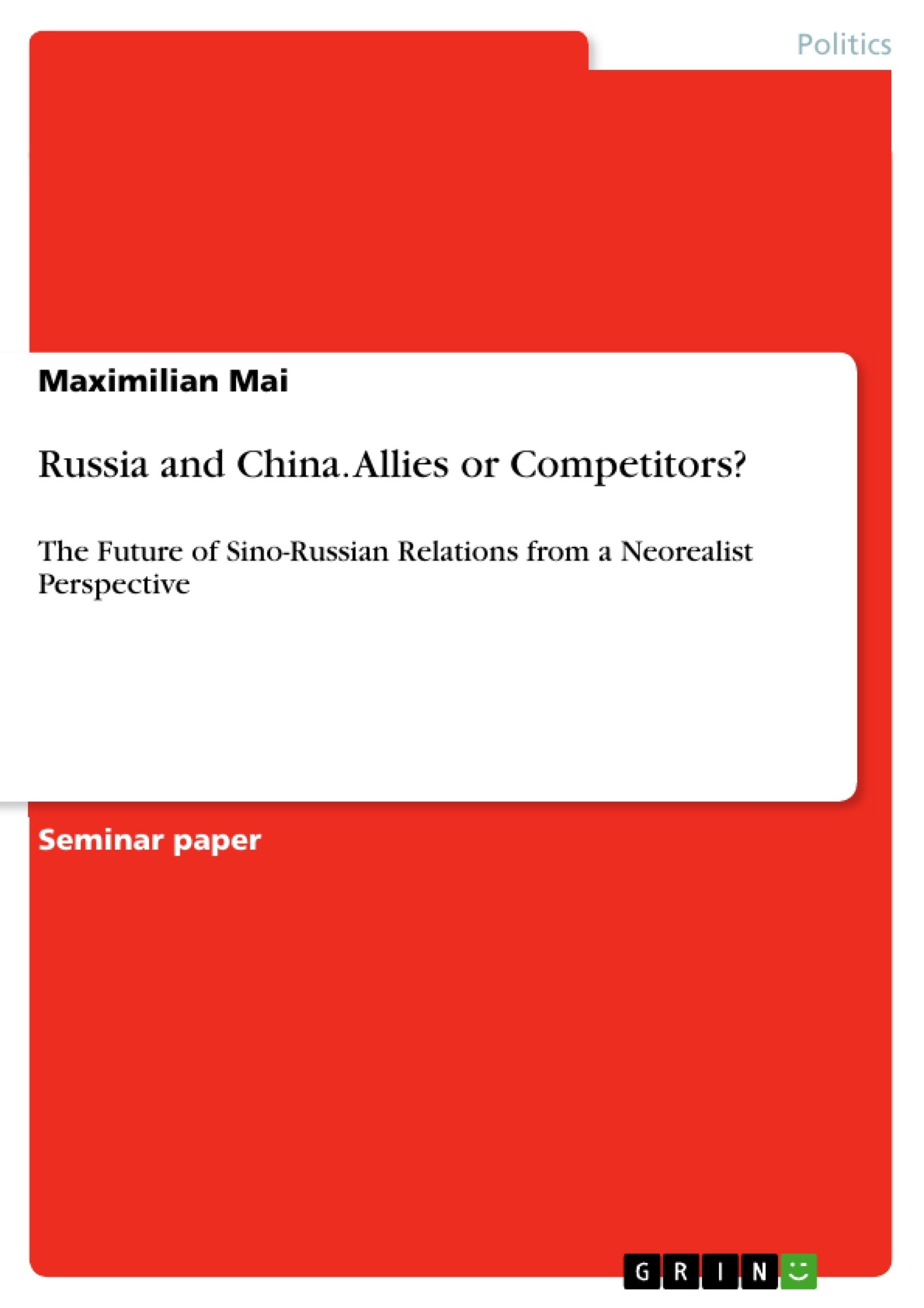Russia and China share a long common history since official relations started in 1683 with the Treaty of Nertschinsk , which marks the first bilateral agreement between China and a western state. Since that time, Russia has been a colonial power, a communist sister country, a revisionist and eventually a reliable partner for China. Sino-Russian relations underwent many breakings and challenges, making both countries’ common history one of the most changeful one could imagine. Nowadays their relation seems to be at an all-time high. Notwithstanding the Ukrainian crisis, Russia and China signed several important cooperation and investment agreements in May and in October 2014, including a giant gas deal for which both countries drove a ten years hard bargain and a cross-currency swap . This crushed western hopes for a growing gap between “bear and dragon” in face of Crimea annexation and caused observers to talk of a Sino-Russian “honeymoon” . However, under the surface their relation is not without any problems. First of all there is a problem of the base: the lack of a common strategy. Beyond opposing the US and the opaque overall idea of a “multipolar world”, both countries do not share a clear vision of a future international system. Moreover, there is a growing dissent in Central Asia as well as growing Chinese nationalism in combination with the unresolved “Siberian question” leading to worries in Russia. Above all, increasing economic asymmetries in China’s favour nurture Russian fears of becoming a “junior partner” or a “resource appendix” to China.
Thus, the future of Sino-Russian relations remains a controversial subject: Is it a natural partnership or just lack of alternatives? Will they be allies or competitors?
Inhaltsverzeichnis (Table of Contents)
- Introduction
- Neorealist theory: a brief introduction
- Main section
- Russia: power resources in the international system
- China: power resources in the international system
- Polarity of the international system
- Conclusion
Zielsetzung und Themenschwerpunkte (Objectives and Key Themes)
This paper examines the evolving relationship between Russia and China, exploring whether they are natural partners or driven by a lack of alternatives. It aims to determine if they will ultimately be allies or competitors in the international system. The analysis utilizes the neorealist theoretical framework to contrast China's and Russia's positions in the international system, thereby providing insights into their future foreign policy behaviors.
- The nature and dynamics of Sino-Russian relations in the context of a changing international system
- The role of neorealist theory in understanding state behavior and power relations
- An assessment of Russia and China's power resources, including natural resources, population, economic capability, and military strength
- The influence of international system polarity on state actions and alliances
- Potential future scenarios for Sino-Russian relations, considering their shared interests and potential conflicts
Zusammenfassung der Kapitel (Chapter Summaries)
The introduction sets the stage by providing historical context for Sino-Russian relations, highlighting their complex and evolving nature. It then introduces the neorealist theoretical framework, which will be used to analyze the dynamics of their relationship. The main section delves into an analysis of Russia's and China's power resources, examining their strengths and weaknesses in terms of natural resources, population, economic capability, and military strength. This section also explores the concept of international system polarity and its implications for state behavior. The conclusion, not included in this preview, would likely offer insights into the future trajectory of Sino-Russian relations based on the analysis presented.
Schlüsselwörter (Keywords)
This paper focuses on key concepts such as neorealism, power resources, international system polarity, Sino-Russian relations, state behavior, foreign policy, alliances, and competition. It examines the interplay of these concepts in shaping the evolving dynamics between Russia and China, offering insights into their future roles in the global arena.
Frequently Asked Questions
What is the central question of this paper regarding Russia and China?
The paper explores whether the relationship between Russia and China is a natural partnership or a result of a lack of alternatives, and whether they will be allies or competitors.
Which theoretical framework is used for the analysis?
The analysis utilizes the neorealist theoretical framework to contrast the positions of China and Russia in the international system.
When did official relations between Russia and China begin?
Official relations started in 1683 with the Treaty of Nertschinsk, which was the first bilateral agreement between China and a western state.
What are the main power resources assessed in the paper?
The paper assesses natural resources, population, economic capability, and military strength for both nations.
What are the main challenges in the Sino-Russian relationship?
Challenges include the lack of a common strategy, dissent in Central Asia, economic asymmetries, and the unresolved "Siberian question."
- Quote paper
- Maximilian Mai (Author), 2014, Russia and China. Allies or Competitors?, Munich, GRIN Verlag, https://www.grin.com/document/295686



